No Peace, Only Calm
I can’t emphasize enough the overwhelming hospitality we felt during our few days in Northern Ireland. From friendly people just stopping to chat in the streets to twice having complete strangers offer to guide us with their car, we developed an immediate love and appreciation for the people of this tiny country.
For us it drew an obvious parallel to another nation in another hemisphere that exhaustively impressed us with its warmth – Colombia. While the causes of the well known problems within these two countries are quite different, they both share a recently troubled past, and an extraordinary quality of great kindness, perhaps due to their eagerness to shed the violent image they carry.
And it is terribly unfortunate that while the worst of Northern Ireland’s tumultuous history may be behind them, powerful tension still exists in certain areas. In Belfast this is most clearly symbolized by an immense wall separating the Falls Road of the Catholic nationalists and the Shankill road of Protestant unionists, with new sections to the wall having been added as recently as 2006.
Gates allow for a flow of traffic between the two contesting neighborhoods during the day, but are locked after dark.
These chilling words started our taxi tour in Belfast. “Nobody wants to invest here anymore, there are few opportunities for the people who live here. I wish I had left when I had the chance.” Al was only fifteen when the Troubles began. Being raised in one of the safer, mixed neighborhoods in Belfast, he proclaims to be unbiased and harbors equal hatred for both sides in the dispute.
Al took us to both sides of the monumental “peace” wall, starting with the Protestant neighborhood along Shankill road. Fiercely loyal to the United Kingdom, we saw an array of blue, red and white flags, and some haunting murals.
Idolized as a commander in one of the para-military groups, McKeag was a top operator in one of the assassination squads and was thought to have killed at least 12 people, mostly ordinary Catholics.
Wherever you stand, the gun is eerily pointed at you. This is known as the “Belfast Mona Lisa”.
Just a few feet away, but separated by the wall that towers over 20 ft, is the Catholic neighborhood of Springfield.
Some of the houses directly beside the fence are protected with steel cages against petrol bombs being thrown over.
At the start of the Troubles, Bombay Street was torched – 65 houses were reduced to 20.
Bobby Sands is a legend among Catholic supporters. Held as a prisoner of war in the late 70s, he died in 1981 while leading a hunger strike when the British government removed the inmates special category status of political prisoners (as was previously agreed to). While he was imprisoned he was elected to parliament and wrote several published letters and articles. Some of his poetry has been made into popular songs.
Al shared stories of his friends lost during the early days, and a startling revelation he had just a few weeks ago. “One lady on a tour commented that it must be nice for things to pretty much be back to normal now,” he said, “and it made me realize that I don’t really know what normal is. Normal existed for me only up until the age of fifteen. That thought made me very angry.”
The Troubles are said to have officially ended with an agreement penned in 1998, but violence still sporadically erupts along old lines, the latest being less than one month ago. Al believes it will be at least twenty years before any of the walls come down, even though the feuding parties are smaller and the reasons to fight are abating, whole generations need to forgive and forget what has happened in recent times.
I find this terribly heartbreaking that a nation full of such generous and hospitable people may continue to be plagued by the turbulence of a few. And while one red-penned message on a wall of millions will hardly lessen these issues, writing it meant a lot to me.


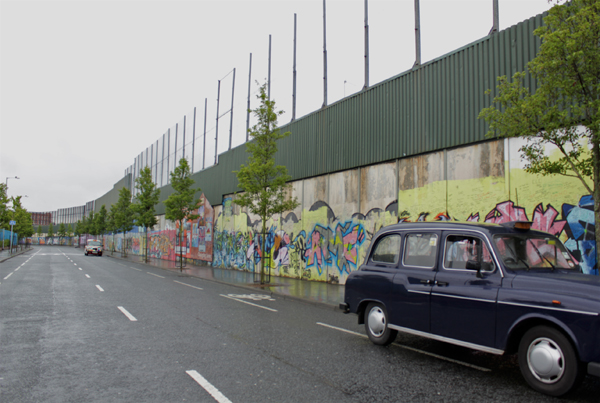
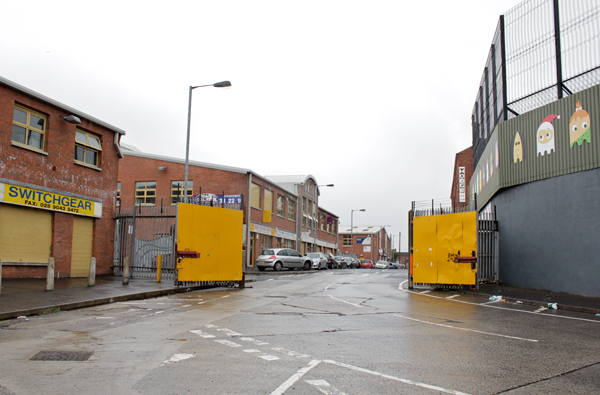
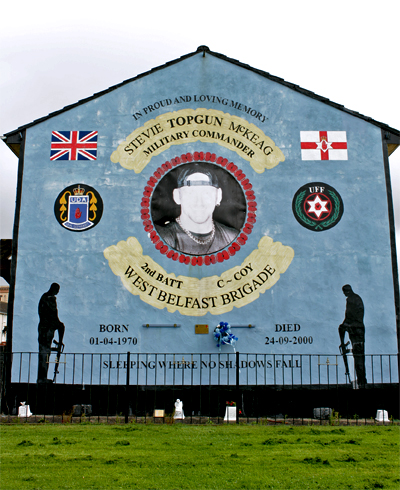
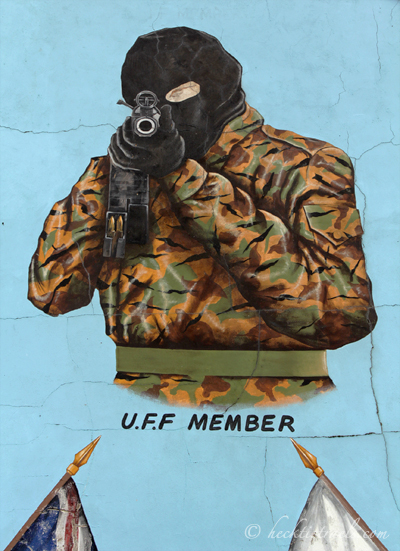
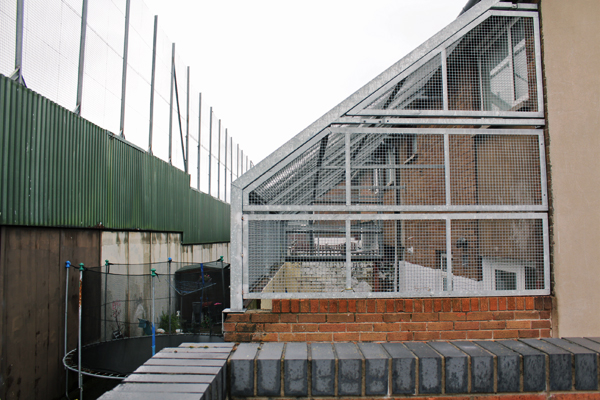
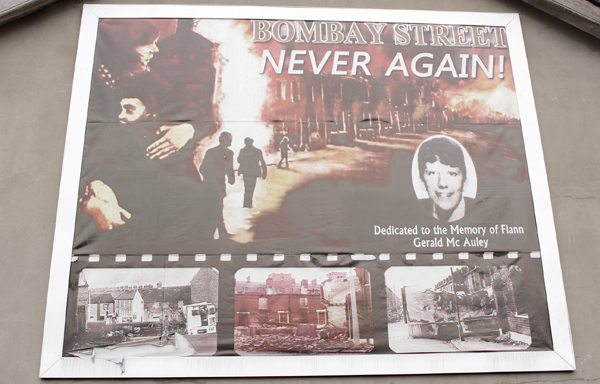
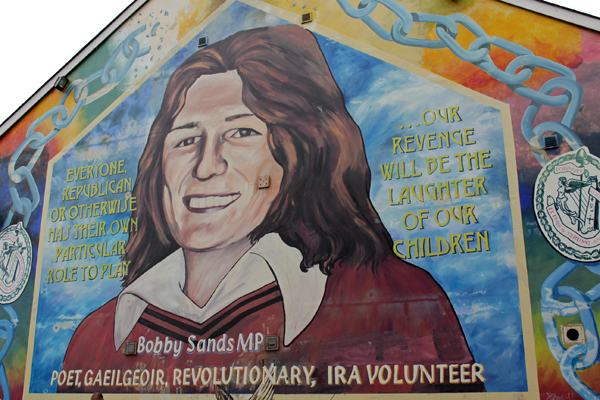
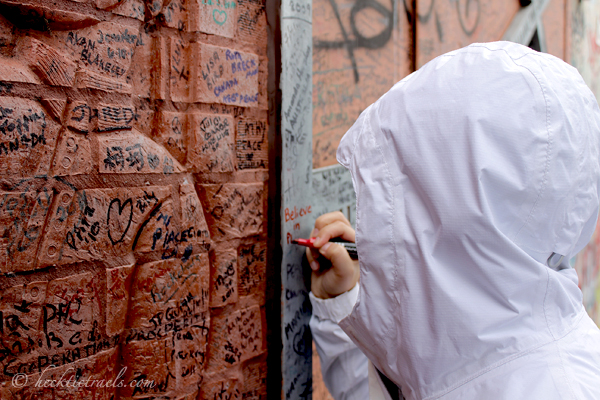
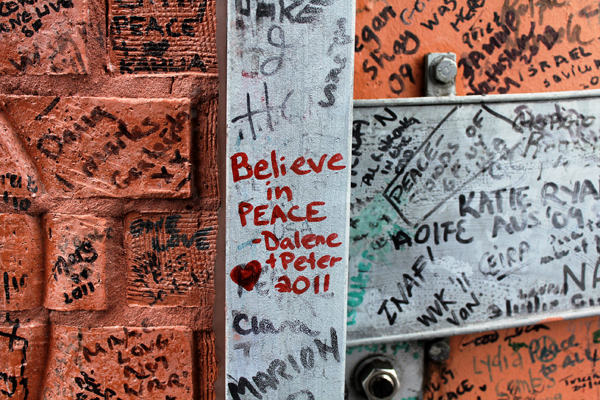
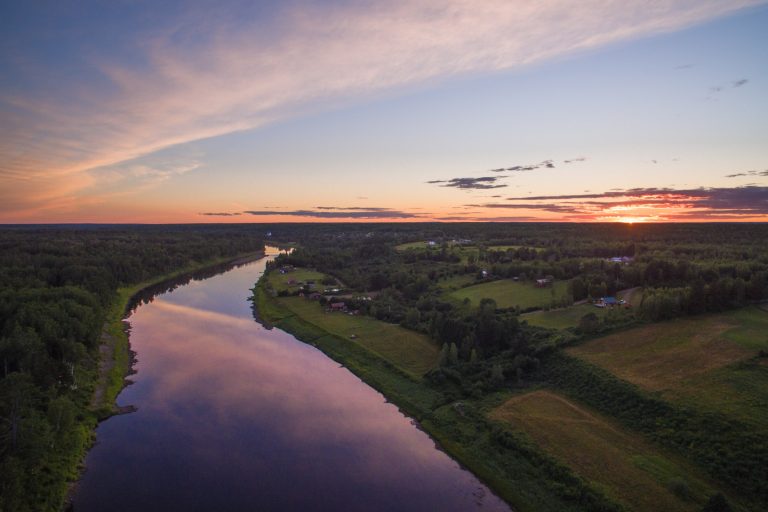

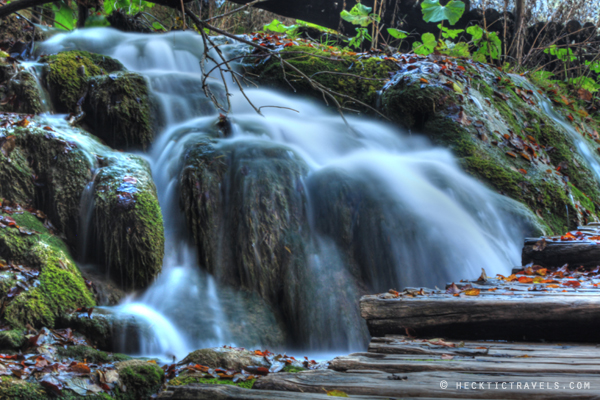
I’m speechless….this is beautiful and heartbreaking.
Thanks…that’s exactly how I felt about Belfast in general.
it’s so sad that this is still going on. al seems like such a nice guy too. it makes me sad to think that he doesn’t know what normal is, and that the fact angers him. it’s understandable but sad.
Intense post–really well-done! I didn’t know about that wall…wow. Reminds me of the one I saw in Israel. Thanks for sharing this–it’s important for people to read about it…
Thanks Lisa, I know which wall you are talking about in Israel (having read about it) – I think it’s so incredibly sad that these have to exist anywhere in the world. And that people who are separated by a few feet of concrete may hate the other without even really knowing them.
Wow, Dalene, this brought tears to my eyes. Thanks so much for sharing your photos of the art in Belfast and all that you’ve learned about what’s happened there.
Thanks so much for your kind words Jessalyn (and for sharing it on FB!)
Wow, great post. Photos, insights, everything. And I love your note at the end 🙂
Thanks Phil! 🙂
It’s rare to learn so much about an area like this… Really absorbing it all. It’s haunting.
There are so many great things about Northern Ireland, I hope I haven’t overshadowed that with this. It is haunting, but such a beautiful area with amazing people.
Love this series, guys – it would have been incredibly scary to live during the times that were the worst. We kept hearing that many Irish people don’t feel they have much of a future there because of the economy but this just adds another level.
We’ve talked to other people who lived there during that time…and they were quite ambivalent about it. It’s not something that consumed the whole nation, but just certain groups. Sad, that it continues to cause so much damage on a whole, based on the whims of a few….
Thanks for sharing this. This conflict has always interested me. It’s said to see so much hate between two groups that are supposedly Christians. Glad there is calm and hope there will be full peace soon.
I hope so too, although sadly I think that peace is quite far away yet….
Life is never simple as it seems. Periods of calmness are always shadowed by a doom and dark past.
That is a sad reality.
Very interesting… and sobering
It’s sad to hear about such conflict riddled parts of the world, but great to hear about the hospitality and friendliness shown by local people.
The hospitality was really overwhelming in both Derry and Belfast. Not to say that their southern neighbors are inhospitable, at all, but we just felt it instantly and many times over in the north!
Great post – a real insight into the troubles, something I’ve grown up hearing about but not seen first hand. Thanks.
Thanks Poi. I was like you – remember hearing about it but knew very little. I’m glad we spent some time in both Derry and Belfast getting to know about it a bit more. A fascinating (but terribly sad) story.
I felt the same way when I traveled to Cambodia. Hard to believe such friendly people can harbor such hatred and cruelty. When I hear accounts like this I am always reminded of Joseph Conrad’s Heart of Darkness. Sadly, the capacity to do evil exists in every person and it just needs certain circumstances for it to occur.
A very sad, and sobering point Ted. (And I’m not familiar with Joseph Conrad, will have to check it out…)
It’s interesting to hear about what things are like in Northern Ireland now – I had no idea there is so much tension.
I’m also in love with the warmth of Colombians like you mentioned, that’s why I have to go back!
Before we got there I didn’t that so much tension still exists either. Thankfully, it’s not as much as years past. When we were on the taxi tour it reminded me so much of the Escobar tour in Medellion – seeing bombed out areas, etc. The reasons for their troubles are so different, but there are still so many similarities.
Hi Dalene,
I just wanted to say I’ve just found your blog & have been devouring the recent posts about Ireland. I’m from Belfast & love your posts about N.Ireland as they are the most honest & truthful I’ve seen from tourists in a long time. I love that you experienced the hospitality that I am proud to say really does exist. I appreciate that you did not see us as a product of our troubled past (and unfortunately) present but as a welcoming country with a unique take on life with a specific majority that do not stand for the whole population with their violence.
I’ll admit I grew up in a mixed area but lived for many years in a trouble hotspot where I literally watched cars being burnt out a few feet from the door. There’s a detached reaction by 99% of the people here who are suffering from a collective Post Traumatic Stress Disorder. When we hear about trouble we just think about the best route to get home from work, will it mean the helicopters will disturb our sleep that night or will my bus be running. It’s like little pockets flare up in their own bubbles while everyone else just continues with their lives around them. Yet we find this normal because it’s all we’ve ever known. It takes stepping outside of NI or seeing it from anothers perspective to see that it’s not ‘normal’
Anyway, sorry for rambling, I just wanted to say thanks for posting & I look forward to reading more of your adventures.
Leah, thank you SO MUCH for this comment. As this post was largely built around the conversation with one man, I was a little wary of trying to use it as a representation of the population as a whole. I’m so glad you stopped by.
During our days there, listening to the stories from that time, Pete and I turned to each other often and expressed our incredulity at people having to live through this. Everything that you described about becoming used to it, or having a detached reaction…neither of us can really imagine what that must have been like, and I’m really sorry that you, and so many others had to (and still have to!)
It is so encouraging though to really see the immense generosity and spirit of the friendly people who reached out to us. The people of Northern Ireland are a large testament to the fact that love and peace can prevail through dark times. Hopefully it doesn’t take too long before that’s the ONLY story to write about with your country. 🙂
Sorry, that should read specific minority not majority! D’oh.
🙂
things like this saddens me… people hurt each other over something that can be discuss… maybe im just an idealist but id like to believe that someday, all this hatred around the world will be over…
We’re with you Flip – idealists all the way – sometimes I think it’s the only way to live in this world without getting overwhelmed with sadness at the dark stuff.
I had no idea there was a wall built there, or that things are still so tense in Belfast. Thanks for sharing this – it’s a great post.
Going into our trip there, I really had no idea either.
I found this to be a very informed piece on a place that is spoken little of. My family is from northern Ireland and my grandfather had to leave because he was catholic in a primarily protestant area. One thing that I should point out is that there is still plenty of violent clashes and that the rampant poverty is causing more young people to develop “dissident” viewpoints. I hope that more people are able to adress these issues before we start to go back into the past.